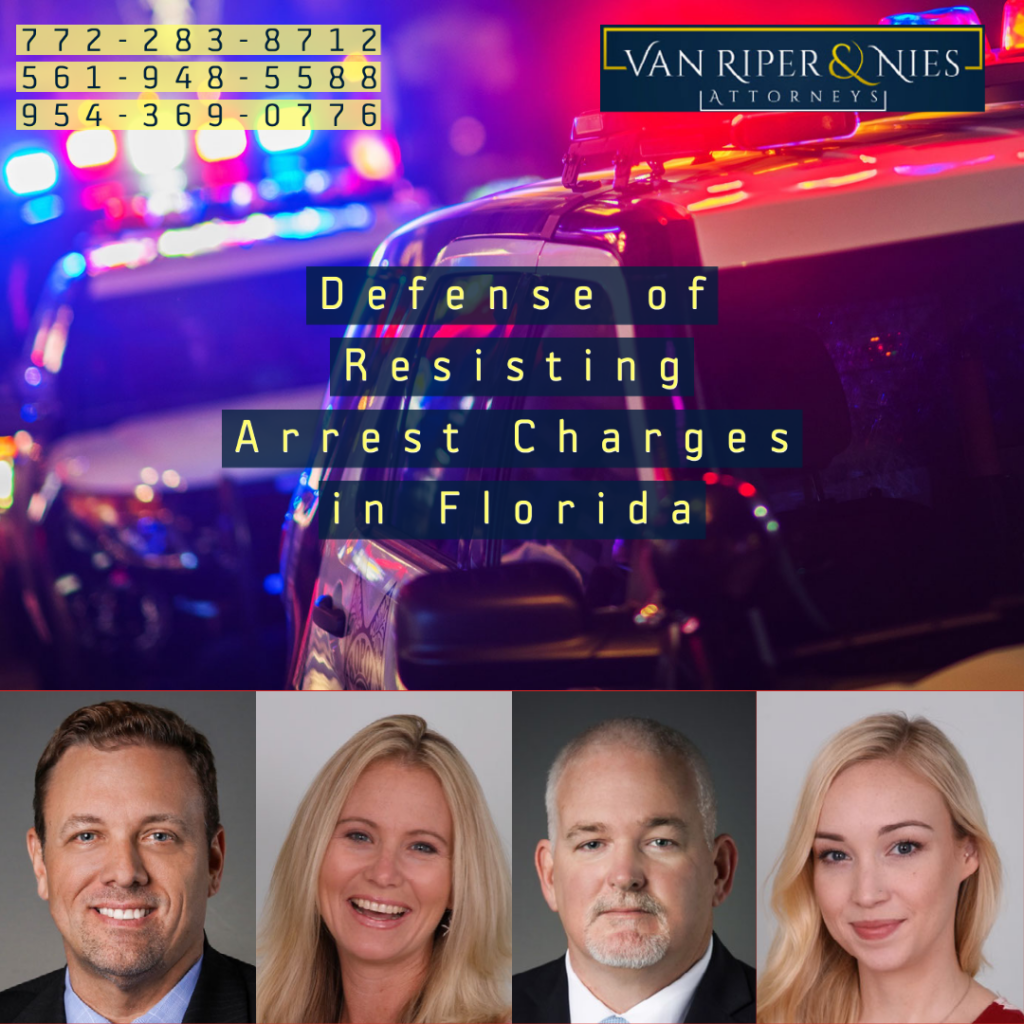
Understanding the Consequences and Risks of Resisting Arrest with Violence in Florida
Introduction:
Resisting arrest with violence in Florida is a serious offense that carries severe legal consequences in the state of Florida. The law recognizes the need to maintain public order and protect law enforcement officers as they carry out their duties. However, it is crucial to understand the implications and risks associated with resisting arrest with violence in Florida to ensure compliance with the law and promote a safe and just society.
Legal Framework in Florida:
Florida law explicitly prohibits resisting an officer with violence under section 843.01 of the Florida Statutes. This offense occurs when an individual resists, obstructs, or opposes a law enforcement officer by using or threatening to use physical force.
To prove the crime of Resisting Arrest with Violence in Florida, the prosecution must establish the following four elements beyond a reasonable doubt:
- The defendant knowingly and willfully resisted, obstructed, or opposed the alleged victim by offering to do violence to him/her or doing violence towards him/her;
- At the time, the alleged victim was engaged in the execution of legal process or lawful execution of a legal duty;
- At the time, the alleged victim was an officer or person legally authorized to execute legal process;
- At the time, the defendant knew the alleged victim was an officer or person legally authorized to execute legal process.
Consequences and Penalties of Resisting Arrest with Violence in Florida:
Resisting arrest with violence is classified as a third-degree felony in Florida. Conviction for this offense can result in severe penalties, including imprisonment for up to five years, probation, fines, and a permanent criminal record. Moreover, it is important to note that a conviction for resisting arrest with violence in Florida can have long-lasting implications, affecting one’s employment prospects, housing opportunities, and overall reputation.
Escalating Risks:
Resisting arrest significantly increases the risks faced by the individual involved. When resisting arrest, individuals may unintentionally escalate the situation, leading officers to respond with force to regain control. If you have been charged with the crime of Resisting Arrest in Florida, contact our criminal defense lawyers at Van Riper and Nies Attorneys, with offices in Stuart, West Palm Beach, Deerfield Beach, Delray Beach and Boca Raton.
Resisting Arrest with Violence in Florida Defense Strategies:
There are multiple defenses available to contest a Resisting With Violence charge in Florida. Common examples include the following:
- The defendant’s actions were not willful and knowing;
- The law enforcement officer was not engaged in the execution of a legal but;
- The defendant did not know that the person he or she resisted was a law enforcement officer;
- The arresting officer used excessive force, and the defendant’s actions were appropriate to repel the excessive force;
- The defendant’s actions were not “violent” within the meaning of the Florida statute.
Conclusion:
Resisting arrest with violence is a serious offense that carries significant legal consequences in Florida. If you have been charged with Resisting Arrest with Violence, contact our criminal defense attorneys day or night. Our criminal defense lawyers represent clients in Broward, Palm Beach, Martin, and St. Lucie counties. Our law firm has offices in Stuart, West Palm Beach, Delray Beach, Boca Raton, and Deerfield Beach, FL.
Criminal Lawyers in Stuart and Port St. Lucie, Florida: office in Stuart, FL.
Criminal Defense Attorneys in West Palm Beach, Florida: Office in West Palm Beach, FL.
Criminal Defense Lawyers in Delray Beach, Florida: Office in Delray Beach, FL
Criminal Attorneys in Deerfield Beach and Pompano Beach, Florida: Office in Deerfield Beach, FL
Criminal Defense Law Firm in Boca Raton, Florida: Office in West Boca Raton, FL.